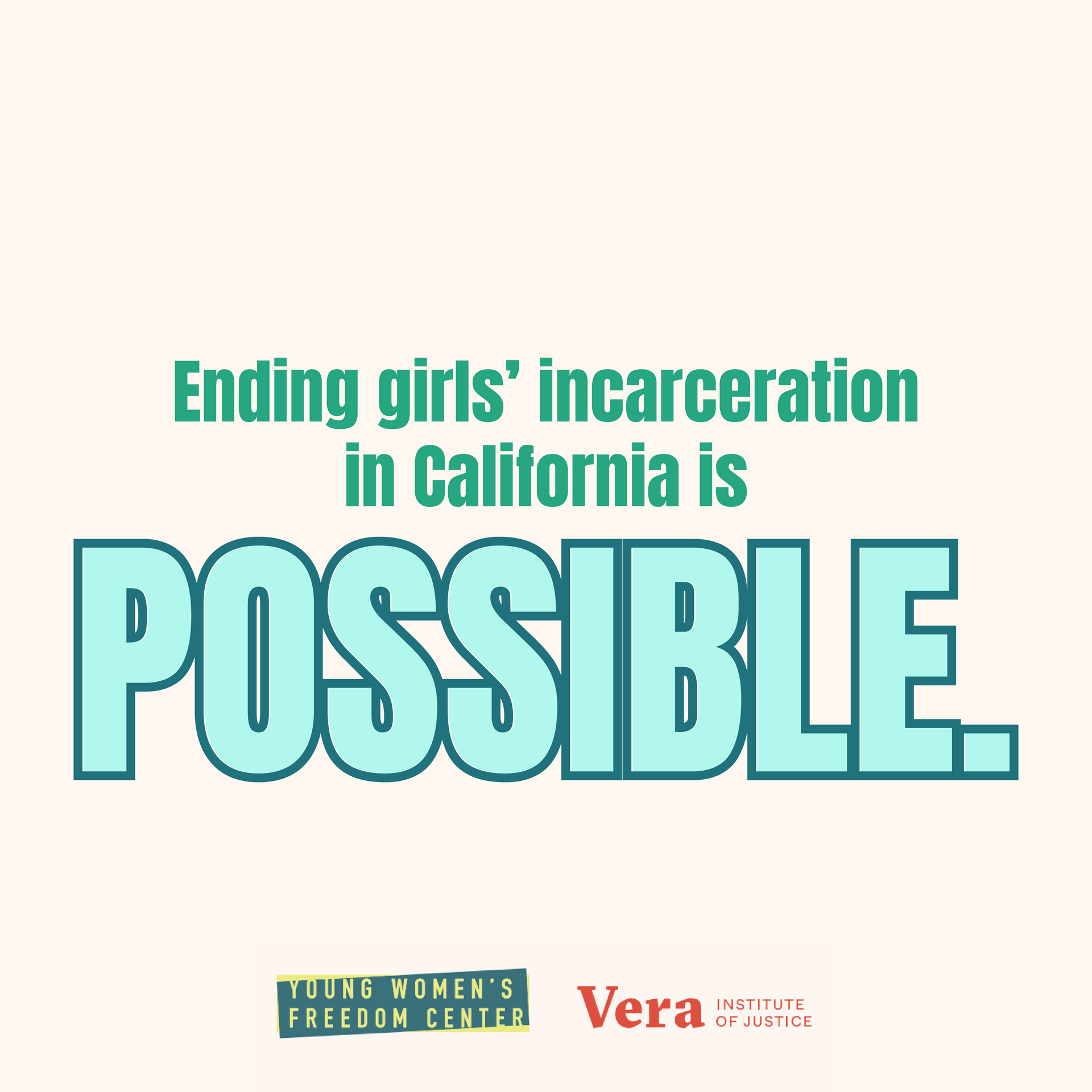Report - Ending Incarceration of Girls, Gender-Expansive Youth in CA
51 percent of girls and gender-expansive youth incarcerated in California identify as lesbian, bisexual, queer, gender nonconforming, or trans.

In 2022, there were more than 1,300 detentions in girls’ secure juvenile detention units across California. Thousands more were arrested and placed on probation. The girls and gender-expansive youth in these facilities are disproportionately living in poverty and youth of color, an inequity rooted in a long history of criminalization, particularly for Black, Indigenous, and Latina/x girls and gender-expansive youth.
Evidence shows that girls and gender-expansive youth face distinct experiences and pathways into the youth legal system and, as a result, have unique needs from preventive and diversionary programs. The challenges that most commonly drive the incarceration of girls and gender-expansive youth—such as sexual abuse, commercial sexual exploitation, family conflict, and housing instability—are more effectively addressed through gender-responsive programs that are lacking in many communities in California.
Decisions to incarcerate girls and gender-expansive youth are overwhelmingly driven by efforts to keep them safe or provide access to services that should be available to all young people in the community. But locking them up and subjecting them to unrealistic and excessive conditions of probation supervision only violates young people’s dignity, exposes them to more harm, and exacerbates the very issues that brought them to court in the first place.
For girls and gender-expansive youth, who often enter the system while actively in crisis or reacting to trauma, removing their agency and self-determination by mandating them to specific services or subjecting them to strict conditions of probation is harmful and counterproductive. Girls continue to experience high rates of sexual abuse and other harm in the very facilities purporting to protect them.
The Vera Institute of Justice and Young Women’s Freedom Center have released a landmark report ‘Freedom and Justice: Ending the Incarceration of Girls and Gender-Expansive Youth in California’. This report provides an in-depth look at the incarceration of girls and gender-expansive youth in California through an analysis of quantitative data as well as first-person stories and presents a roadmap of solutions for policy and practice changes that can be implemented to reduce—and eventually end—their incarceration.
Key takeaways -
- Girls of color, and Black girls in particular, are disproportionately impacted by California’s juvenile legal system, making ending girls’ incarceration an urgent matter of race equity.
- Girls and gender-expansive youth are criminalized for infractions related to their experiences with family conflict, abuse, housing instability, and school pushout.
- Once girls and gender-expansive youth become involved in the legal system, even for minor infractions, they can experience cycles of probation and incarceration that last years.
- Young people also described the types of support and solutions that would be most helpful to them in healing from trauma and staying out of the legal system. They recommended investments in community-based healing, therapy, and mentorship resources; housing and material economic support; and opportunities to be engaged in advocacy and give back to their communities.
- Juvenile arrests, detentions, and placements are steadily declining. Girls’ incarceration numbers are low enough to put ending incarceration well within reach for the state.
You can read and download the full report (PDF) here --->> Freedom and Justice: Ending the Incarceration of Girls and Gender-Expansive Youth in California










